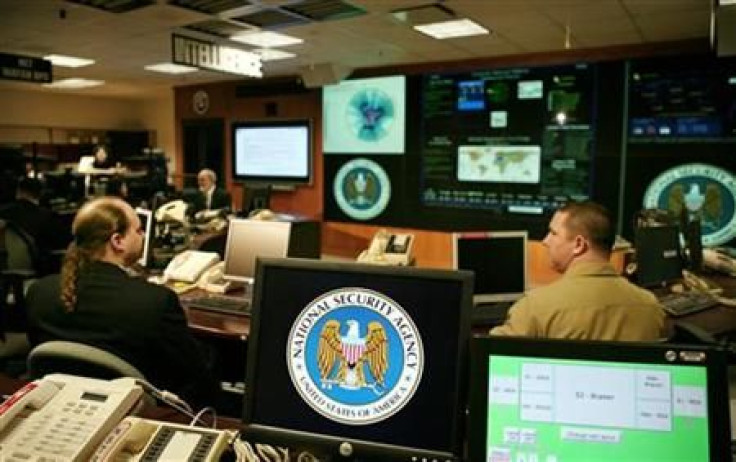NSA FISA Surveillance: Amash Amendment Tests Congress's Appetite For Metadata Program

The author of the Patriot Act, Rep. James Sensenbrenner, R-Wis., warned intelligence officials last week that Congress would not reauthorize their surveillance authorities in 2015 if the NSA metadata collection program is not reined in. The first real test of this threat will come Wednesday, when the House of Representatives is expected to vote on an amendment to the Defense appropriations bill to defund the metadata collection program.
Even before the vote, the fact that the amendment might pass is a sign that lawmakers are uneasy about the surveillance programs since former National Security Agency contractor Edward Snowden leaked details of the metadata program in early June. If the amendment passes, it could be a wake-up call to the intelligence agencies that members of Congress are willing to challenge them over what types of surveillance they can conduct.
The administration is taking the amendment put forward by libertarian-leaning Rep. Justin Amash, R-Mich., seriously. The White House weighed in on the issue late Tuesday in a statement from Press Secretary Jay Carney. “We oppose the current effort in the House to hastily dismantle one of our intelligence community’s counterterrorism tools,” Carney said. “We urge the House to reject the Amash amendment, and instead move forward with an approach that appropriately takes into account the need for a reasoned review of what tools can best secure the nation.”
The director of the NSA, Gen. Keith Alexander, also traveled to Capitol Hill on Tuesday to lobby members to vote against the amendment in a classified question and answer session, according to the Huffington Post.
"When's the last time a president put out an emergency statement against an amendment? The Washington elites fear liberty. They fear you," Amash tweeted around 12 a.m. Wednesday in response to the Carney statement.
On Tuesday, House members were unsure whether Amash’s amendment had enough votes to pass. “I know that there is a general lack of satisfaction with the explanations we’ve been given,” Rep. Trey Gowdy, R-S.C., said Tuesday. “Now whether that dissatisfaction will manifest itself in a vote for his amendment or not, we will know in 24 hours.”
“I can see a lot of people voting for it,” Rep. Mike Simpson, R-Idaho, said Tuesday. “But if I was going to predict I would say it wouldn’t have enough support right now.”
“I don’t know but I hope so,” Rep. Jerrold Nadler, D-N.Y. , said Tuesday, on whether Amash’s amendment will prevail. But even if the amendment fails, Nadler says this won’t be the last word on the issue. If Congress doesn’t address the surveillance program before 2015, then the debate will take place over reauthorization. “If we get a number of Republicans like Sensenbrenner saying don’t renew it, then it won’t be renewed,” Nadler said.
Though debates over the government's surveillance authorities flare up every few years, lawmakers say that this time it is different -- and this vote could prove there is an appetite, at least in the House of Representatives, to take on the intelligence community. “This is different,” said Gowdy, who worked to get the Patriot Act amendment at issue through Congress during the last reauthorization in 2011. “I talked to colleagues and I’m not doing that anymore until I have some questions that are answered.”
With bipartisan backing, including from the top-ranking Democrat on the Judiciary Committee, Rep. John Conyers of Michigan, Amash’s amendment would limit the metadata collection by withholding funding for the collection of information that does “not pertain to a person who is the subject of an investigation.” Amash and the amendment's co-sponsors will have 15 minutes of floor time later Wednesday to debate the amendment before vote on the final passage of the $512.5 billion appropriations bill.
“This is a test vote and the stakes are high,” Greg Nojeim, senior council at the Center for Democracy and Technology, a privacy rights group, said in a statement Tuesday in support of Amash’s bill. “If the amendment passes, NSA will know that if it doesn’t end the program, Congress probably will.”
© Copyright IBTimes 2024. All rights reserved.












